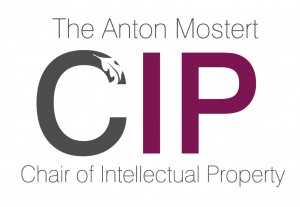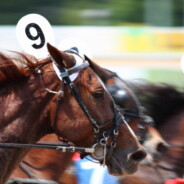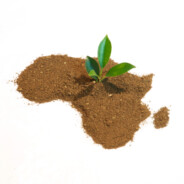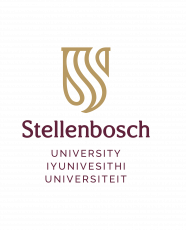Performers’ Protection Amendment Bill Commentary
Prof Karjiker’s comments on the draft the Performers’ Protection Amendment Bill [B24-2016] (the “Amendment Bill”), are submitted to the Portfolio Committee on Trade and Industry (the “Portfolio Committee”) pursuant to the invitation of the Portfolio Committee. These comments will focus on the interaction between the Performer’s Protection Act 11 of 1967 (the “Principal Act”) and the Copyright Act 98 of 1978 (the “Copyright Act”). However, the comments also raise matters of concern present in the Amendment...
read moreNo Trade Mark Protection for Rubik’s Cube Puzzle
Discussion: Court of Justice of the European Union; November 10, 2016, Case 30/15, Simba/EUIPO (full text here). In this case the CJEU could further clarify how to apply the rule of European trade mark law providing that trade marks that consist exclusively of a shape or other characteristic of a product that is necessary to obtain a technical result cannot be protected. The decision is interesting for South African trade mark law, since section 10(5) of the Trade...
read moreWhat’s In A Name
In his play “Romeo and Juliet” William Shakespeare advanced the proposition through his character Juliet: “What’s in a name? That which we call a rose by any other name would smell as sweet.” What he was saying was that the flower, the rose, had intrinsic value, and, no matter what name it was given, that intrinsic value would be unaffected. The actual name, per se, was thus irrelevant and had little or no value. That proposition may have had some merit in the seventeenth century and in the specific context in which it was advanced,...
read moreReviewed: IP Consultative Framework 2016
Summary: While the Department of Trade and Industry’s recently published Intellectual Property Consultative Framework promises that future legislation will be the result of a thorough examination of the matters of concern by experts, and stakeholders, in the field, it should also consider undoing the potential damage which may have already been done to our intellectual property laws as a result of the failure to proceed with such rigour in the recent past. To read the IP Chair’s full review of the IP Consultative Framework click...
read moreNews reports and fair dealing: Moneyweb v Media24
The recent decision involving Moneyweb and Media24 (Moneyweb (Pty) Limited v Media 24 Limited & Another [2016] ZAGPJHC 81) (full text available here) is an important one for copyright lawyers in South Africa because it is the first time that two provisions relating to news reporting of the Copyright Act 1978 (the Act) have been judicially considered, namely, sections 12(1)(c)(i) and 12(8)(a). In fact, it is the first time that the application of the fair-dealing provision, section 12(1), has received any judicial consideration, whether in...
read moreThe Protection, Promotion, Development and Management of Indigenous Knowledge Systems Bill, 2016: Has the DST lost its resolve?
1 Introduction Despite there being no internationally-accepted agreement on the mechanism for protecting indigenous (or traditional) knowledge, or indigenous (or traditional) cultural expressions, the South African government appears to be determined to introduce some form of protection in this area. To that end, the Department of Science and Technology (“DST”) published the latest draft of the Protection, Promotion, Development and Management of Indigenous Knowledge Systems Bill (the “2016 IKS Bill) on 8 April 2016 (GG 39910).[1] This...
read moreLicencing of Patent Applications – Pre-Grant Royalty Earning
Research and development is costly. International patent portfolios even more so. The business strategy of most corporations, when filing a patent application, is to seek some return on R&D investment, mostly through self-exploitation of the products of R&D, or through royalty earnings from intellectual Property (IP). The time frame between filing a patent application to grant can take many years. Patent offices’ backlogs often result in a three year (or longer) delay before any office actions are issued or an application is...
read moreIP Public Lecture 2015 – Copyright as an Agent of Social Justice
THIS EVENT IS NOW CLOSED Watch the video of the lecture below. The annual Intellectual Property Law Public Lecture was presented by Prof Owen Dean on 6 October 2015 on the topic Copyright as an Agent of Social Justice – perspective on the Lion Sleeps Tonight case. To read more about the lecture click here. Follow Share on...
read moreUnscrambling the Curate’s Egg – Full Review of the Copyright Amendment Bill
In an earlier article posted on this blog, the Copyright Amendment Bill published in Government Gazette no. 39028, dated 27 July, 2915, was described as a curate’s egg, i.e something that is fundamentally bad but in principle has some good aspects. The view was expressed that the Bill could not be cured by piecemeal amendments, and that it was necessary to go back to the beginning, decide rationally what is actually wanted and warranted, and then re-draft it afresh. We stand by and reiterate this view. Nevertheless, in the interests of...
read moreA Diamond in the Rough – Technology and the Copyright Amendment Act
The Copyright Amendment Draft Bill (GG No 39028, 27 July 2015) (‘the Bill’) is by all accounts a grave misfortune and a study in amateur law-making. Enough has been said on this point to make it clear that the DTI has tripped at the first hurdle and that a re-evaluation is the only hope of achieving a grade that would admit it to the Introduction to Copyright Law 101 examination. However, it is noteworthy that the Bill contains a set of provisions that is worthy of (limited) praise and deserving of closer analysis. These are, among others,...
read moreDTI Dishes Up A Hopeless Curate’s Egg
The figure of speech used in describing something as a “curate’s egg” derives from a cartoon by G du Maurier published in the British humorous magazine Punch in November 1895. It depicts a meek curate, faced with a bad egg at the Bishop’s breakfast table, commenting that it is partly good. In other words it is something that is thoroughly bad but is discreetly said to be partly good.[1] “The term relies on an objective analysis and intuitive understanding of the depicted scenario: a self-contained egg cannot be both partially spoiled...
read moreLet’s Pray for Mediocrity: Another Case of Legislative Diarrhoea
On 27 July 2015 the Department of Trade and Industry (“the DTI”) published the Copyright Amendment Bill 2015 (the “Amendment Bill”) in the Government Gazette, asking for public comment within 30 days from such date. Given the number of issues contained in the Amendment Bill that needs to be addressed, it will be almost impossible for one person to give comprehensive comments within the allotted time, unless that is their only task. It never ceases to amaze me how much time now has to be dedicated, by myself, and other academics and...
read moreGoogle’s Silver Bullet for Patent Trolls
Technology companies take note: Google may have found a way to beat patent trolls, and you are invited to join them. The term “patent troll” refers to an entity which exists for the sole purpose of enforcing or licensing patent rights which were not the result of its own innovation. Although the term “patent assertion entity” is preferred by policy makers and academics, the more colourful and emotive “patent troll” has firmly entered our lexicon and has recently even appeared in a U.S. Supreme Court decision. Google, SAP, Uber and...
read moreIntellectual Property and the Constitution
Section 2 of the Constitution of the Republic of South Africa, 1996, provides that it is the supreme law of the country and that any law inconsistent with it is invalid. This provision creates the necessity to interpret the Copyright Act in a manner consistent with the Constitution at the risk of the Act, or particular provisions of it, being declared to be invalid. On the other hand, section 36 provides that the rights in the Bill of Rights (Chapter 2 of the Constitution, comprising sections 7-38, which detail the fundamental human rights)...
read moreNeedletime Royalties: At last, some case law
You wait ages for a reported judgment concerning “needletime” royalties pursuant to section 9A of the Copyright Act, and then two come along at approximately the same time. There were two reported decisions, one, an enquiry by the Copyright Tribunal, and, the other, a judgment by the Supreme Court of Appeal following an appeal from the Copyright Tribunal. Needletime royalties are the amounts charged for copyright licences for the playing of sound recordings which are audible to the members of the public. Besides the courts’ consideration...
read moreA Better Second Attempt – Protection of Indigenous Knowledge
On 20 March 2015 the Department of Science and Technology published the first draft of the Protection, Promotion, Development and Management of Indigenous Knowledge Systems Bill, 2014 (the “IKS Bill) and called for comments. The Chair of IP Law has responded to this call and delivered extensive representations on the IKS Bill authored by two of its members, Prof Karjiker and Dr Kleyn. The full text of Prof Sadulla Karjiker’s comments is available here. The full text of Dr Madelein Kleyn’s comments is available here. Below...
read moreCriminal Plants – New Plant Breeders’ Rights Bill
Editor: Among the various pillars of the intellectual property law, perhaps the most esoteric is that of plant breeders’ rights. Despite its significant scientific and economic role, this peculiar and highly specialised field is unfamiliar to most outside the field of IP law. It is therefore with pleasure that the Chair of IP Law reproduce here a post on the Plant Breeders Rights Bill of 2015, which first appeared here on the website of Spoor & Fisher. Most appropriately, this insightful review of the Bill is written by...
read moreSupreme Court of Appeal Losing Its Shape
INTRODUCTION The Supreme Court of Appeal has been blessed for the past few decades by having in its ranks judges who have experience and expertise in the field of Intellectual Property Law. One thinks of Judges like Chris Plewman and Louis Harms who had a wealth of experience in handling IP cases while practising as advocates at the bar and in hearing such cases both in Provincial Divisions as well in the Supreme Court of Appeal. This factor contributed substantially to the quality of IP judgments emanating from the Supreme Court of Appeal...
read moreOpened With Expectation and Closed With Profit
Speech delivered by Judge Mabel Jansen at the book launch of Dean & Dyer Introduction to Intellectual Property Law “In our court building, when one wanders in the judges’ corridors, the photographs of all judges who served on the Bench, adorn the walls. One looks at the photographs of judges Galgut, Holmes, Hoexter and many others whom one did not even know existed, and it is with sadness that one realises what a font of knowledge died with each of them. What is also striking is how soon most of the judges died after being...
read moreKeyword Advertising: The Next Instalment in the Interflora v M&S Saga
A few days after the first South African case to consider the issue of Internet keyword advertising (Cochrane Steel Products (Pty) Ltd v M-Systems Group (Pty) Ltd & Another Case 39605/13, 29 October 2014), we had the next instalment – from the English Court of Appeal – in the dispute between Interflora and Marks & Spencer (Interflora Inc & Another v Marks & Spencer plc [2014] EWCA Civ 1403). Yes, it is, indeed, not just any dispute concerning keyword advertising. It appears that these two litigants have taken it upon...
read moreA limited victory: IP and exchange control
In the culmination of a widely followed case, on 1 October 2014 the Supreme Court of Appeal ordered the South African Reserve Bank (SARB) to repay Mark Shuttleworth over R250 million plus interest. The money had been levied against Shuttleworth when he applied to transfer his assets out of the country in 2009. He had emigrated from South Africa several years before that, and the prevailing practice at the time was to levy an exit penalty of 10% on any person who emigrated and wished to transfer more than R750,000 from South Africa. This exit...
read moreThe First Step
This is an editorial article contributed to the 50th year Commemorative Edition of Responsa Meridiana. “A journey of a thousand miles begins with a first step”. So said Lao-tzu, the Chinese philosopher, who lived in the fifth century BC. How true this can be of a legal career and indeed of any on-going venture. When one looks back over a career, one realises just how important the first step embarking on that career was. Often the significance of the step was not realised at the time and perhaps it was not even recognised as a first...
read moreOpen Letter – Plain Packaging Legislation and the Constitution
NOTE: The following open letter has been delivered by email to the office of the Minister of Health of the Republic of South Africa on 31 July 2014. The contents of this letter is published here in furtherance of the debate on plain packaging legislation and the potential impact on the Constitutional rights of the proprietor. OPEN LETTER 31 July 2014 The Honourable Minister of Health Dr Pakishe Aaron Motsoaledi Civitas Building Corner of Thabo Sehume and Struben Streets Private Bag X828 PRETORIA 0001 Dear Dr Motsoaledi, RE:...
read moreLiteral Extortion
The verb “extort” means “obtain (money, a promise, a concession, etc.) from a reluctant person by threat, force, importunity, etc.)” The noun form, “extortion”, means “the act or an act of extorting money etc.” (The New Shorter Oxford English Dictionary published by Clarendon Press, 1993). Requiring someone to pay copyright royalties for a manner of use of a literary work, when none is due in law, amounts to literal extortion. It is not a salutary practice. Copyright in a work confers upon the copyright owner the exclusive...
read moreA Spoon Full of Sugar for Plain Packaging
History has taught us that the South African Government, and the Legislature in particular, will not hesitate to make bad law. The volume of carelessly drafted, ill conceived, unconstitutional and overtly political laws that the public has been force-fed in recent years is so great that recourse to the Constitutional Court has become a pedestrian matter. In fact, the alarm felt over perpetual ham-handed law making is only outstripped by Government’s brazen disregard for public cooperation in the democratic process. This even after the...
read morePatents and Public Health – The New Frontier
The long-awaited South African draft National Policy on Intellectual Property (the draft IP Policy) which was published on 4 September 2013 (read the policy here) has recently led to an unfortunate furore in the press. On 17 January 2014 Money MSN published a report based on a document that was leaked from the Innovative Pharmaceutical Association South Africa (IPASA), an industry lobby group comprising the local subsidiaries of innovator pharmaceutical companies. The document is a plan for a campaign prepared by U.S.-based consultancy Public...
read moreUnveiling The Wolf
The erstwhile Intellectual Property Laws Amendment Bill (“IPLAB”), generally known as the “Traditional Knowledge Bill”, became an Act when it was published in the Government Gazette as having been assented to by President Jacob Zuma on 10 December 2013. This despite vociferous objection from the IP community and other informed sources. (Read more about IPLAB here, here, here and here.) The general consensus was that the Bill was fundamentally flawed and an abominable piece of legislation. Issue was not taken with the notion that...
read morePromotion and Protection of Investment Bill, 2013 – A Review
On 1 November 2013, the South African Department of Trade and Industry published the draft “Promotion and Protection of Investment Bill” (the “Draft Bill”) for comments. The Draft Bill comes shortly after South Africa decided to unilaterally terminate its bilateral investment treaties (“BITs”) with certain European states and specifically Belgium, the Netherlands, Luxemburg, Germany, Spain and Switzerland. The Draft Bill is intended to promote investment by modernising the current investment regime and...
read morePublic Health Sector and the South African National Policy on Intellectual Property
The publication of the South African National Policy on intellectual property (SANIPP) in September 2013 has opened a proverbial can of worms and the Pharmaceutical industry is up in arms. The SANIPP proposes the introduction of stronger IP rights through the introduction of, amongst others, pre-and post-grant opposition proceedings, and makes reference to the introduction of compulsory licensing provisions in the Patents Act. Whilst the focus is on various industries, the matter of public health and the pharmaceutical industry forms a...
read moreFormula For Plain (Bland) Packaging
As of 6 December this year you will no longer see a nurturing mother feeding her happy baby a bottle of formula milk as an advertisement in any newspaper, magazine, on a website or on television. In fact, you will not see the names of any brand or logos of infant formula, follow-up formula or powdered milks, or feeding bottles, teats and feeding cups for infants being promoted anywhere. Well, you will still see the names on the products as you are standing in front of the shelf in the supermarket and wondering which product is the best option...
read moreIn vino veritas – Mettenheimer v Zonquasdrif Vineyards
While trade mark infringement cases are not unusual, there are few decisions in which the central issue which required determination was whether the respective goods involved were so similar that it would gave rise to a likelihood of deception or confusion. It is for this reasonthat the decision in Mettenheimer & Another v Zonquasdrif Vineyards CC & Others ([2013] ZASCA 152) deserves consideration. Mr Mettenheimer, the first appellant, was the proprietor of the ZONQUASDRIFT trade mark, registered in class 33 in respect of alcoholic...
read moreDraft Policy on Patents – Passages from India?
Introduction The Draft National Policy on Intellectual Property (DNPIP) of South Africa was published on 4 September 2013 for public comments. Despite the fact that the DNPIP is not conducive to a systematic and consequential analysis of it and displays an alarming lack of understanding and/or knowledge of existing South African IP law one cannot overlook the repetitive element of requirement for “stronger patents” which the DNPIP states will be achieved through implementation of a search and examination system as well as pre- and...
read moreGovernment’s reflections on the world of Intellectual Property
INTRODUCTION Have you ever basked in the warm sunshine of a glorious summer’s day, in daydreaming mode, and allowed your mind simply to wander at random? You start with a thought, you turn it over in your mind, and then a point is reached where you go off at a tangent and muse over some largely unrelated thought, only to be diverted in yet another direction. Eventually you may go the full circle and come back momentarily to the point of departure, before heading off again elsewhere. Daydreaming can be a very pleasant experience and it has...
read moreThe Rooibos Rush
South Africa is no stranger to the fever that accompanies the discovery of gemstones or precious metal in a particular region. Indeed, for decades the mineral riches of our nation were legendary across the world and the object of several battles for imperial, colonial or feudal control over the diamond, gold, platinum and coal fields of South Africa. As a testament to this, the foothills of Table Mountain is home to the Rhodes Memorial dedicated to the fervently imperialist, English mining magnate Cecil John Rhodes, former Prime Minister of...
read moreConfessions Of A Privileged Lawyer
I have a confession to make. I plead guilty as charged. I admit that I am a white male establishment lawyer. I practised for 35 years as a partner of a prominent attorneys firm specialising in the field of intellectual property law (“IP”). Thereafter, upon retirement, I became a Professor of IP Law. This makes me a member of that heinous and much vilified group of lawyers who are charged with the crime of wishing to preserve its privileged position and therefore overtly or covertly being against transformation in the legal profession and...
read moreThe Winning Choice For Traditional Culture
Note: Seldom will the VineOracle descend into the dust of the arena, even when the winner is known to her in advance. But on this occasion she considers it necessary to expound upon the recent developments in IP legal development for the sake of those who care to learn. Here is her report on the match between two opposing, albeit ill-matched, forces seeking to use the intellectual property law system for the protection of traditional knowledge. In 2004 the Cabinet approved the adoption of a policy on Indigenous Knowledge Systems,...
read moreClean Power Technology Protection
As the pressure on “going green” increases internationally, eyes are turned to the protection of intellectual property and its mechanisms and particularly the question as to whether the World Trade Organization agreement on Trade Related Intellectual Property Rights (TRIPS) should include special flexibilities for access and dissemination of environmental sound technologies such as they occur in the fields of health or nutrition and how can this be of benefit? It is argued that the IP system has been associated with some limitations with...
read moreHappy Birthday in Wonderland
Warner/Chappel Music, a music publishing company in the United States of America, claims and exerts copyright in the ubiquitous song “Happy Birthday to You”. It requires that royalty payments should be made to it each and every time this song is sung or used in public. This is a startling proposition as most people probably assume that the song is in the public domain and is free for use by all. An American documentary film maker agrees and is objecting to having to pay royalties to include the song in a film. It has consequently commenced...
read moreBrand Genocide
We all know GOOGLE. It is a facility that enables us to source information on the internet. The word GOOGLE indicates the identity of a particular service provider and distinguishes those services from similar services rendered by others, such as YAHOO. Each service provider designates its particular services by means of such a mark. The word GOOGLE is a brand or trade mark fulfilling its role as a “badge of origin”. It is exceptionally well known, world-wide. This renown or repute has been brought about by extensive public exposure of the...
read moreLetting the Copyright Cat Out Of The Bag
The almost endless capacity of government to waste valuable resources by embarking on half-baked, and socially costly, ideas never ceases to amaze me. What makes the situation deeply troubling (and, not just a little, ironic) is that they sometimes spend money employing consultants to tell them that they are wasting money on these enterprises. If that were the extent of government’s failure in relation to its policy shortcomings, I could, perhaps, shrug my shoulders and attempt to be philosophical about such matters. However, when...
read moreHOT OFF THE PRESSES – Sui Generis TK Bill Published In The Gazette
Roll up and hear the good news! Today the new sui generis Protection of Traditional Knowledge Bill was published in the Government Gazette, signalling a major step toward the protection of traditional knowledge (TK) in South Africa. Full text of the Bill available here. This Bill is based on the Protection of TK Bill drafted by the incumbent of the Stellenbosch Chair of IP Law (CIP), Prof Owen Dean, and was tabled in Parliament by Dr Wilmot James earlier this year amid widespread and serious criticism of Government’s current attempt at...
read moreTrampling Tradition – A Call For Support
The Stellenbosch Chair of Intellectual Property (CIP) has repeatedly, thoroughly and honestly expressed its views on the proposed Intellectual Property Laws Amendment Bill (the Traditional Knowledge Bill) in no uncertain terms. Its labours have included extensive research on the consequences for our IP regime if it was to become law, the financial, legal and practical difficulties our legal system will face in its wake and the dismissive attitude of the Portfolio Committee on Trade and Industry toward every legitimate concern from the...
read moreA Different Ball Game
Readers will have observed from perusing the articles on this blog that I have commented on a number of occasions on the proclaimed intention of the Government to pass legislation curtailing or prohibiting the use of trade marks on tobacco products, both on their packages and in advertising. I have expressed the view that by so doing the Government will be depriving the trade mark owners of their valuable items of property which is at odds with Section 25 of the South African Constitution, unless compensation is paid for such depravation or...
read moreBeating About The Rooibos
It is a fact of life that attempts have been made in certain other countries to usurp control of the term or mark ROOIBOS, despite the fact that it is a well-known South African description for a particular plant which gives rise to ROOIBOS tea. The term ROOIBOS is as typically South African as “braaivleis” and “biltong”. It is really part of our South African heritage. The South African authorities have nonetheless taken no concrete or effective steps to protect and control the use of this term in South Africa or...
read more“Awakening The Lion” – Portraying The Tip Of The Iceberg
Professor Owen Dean’s much anticipated book, “Awaking the Lion – The case of The Lion Sleeps Tonight” has been published by Tafelberg Publishers. It takes the form of a so-called “short” book and is only available electronically as an e-book from Amazon, Kobo, Kalahari and Leisure Books. The book tells the story behind the story of a copyright saga that made international headlines, and gives Prof Dean’s first-person account of the pioneering and proudly South African case that made legal history. It deals with the saga of...
read moreBraking With Tradition
INTRODUCTION As will be apparent from perusing the articles posted on this blog indicated by the keywords “traditional knowledge”, The Vine Oracle has been forthright in its criticism and condemnation of the Department of Trade and Industry’s Intellectual Property Laws Amendment Bill which seeks to introduce a special form of protection for so-called “traditional knowledge” into each of the Trade Marks, Copyright, Designs and Performance Protection Acts (the Bill is commonly known as the “Traditional Knowledge Bill”). The...
read moreThe Pan-African Intellectual Property Organization (PAIPO) Draft Statute
Introduction Because intellectual property rights are territorial in nature (i.e. they have to be recognised by the country in which protection is sought), since the expansion of cross-border trade in the 19th century, authors, creators, designers, inventors and traders have sought similar protection in other countries to that which they enjoy in their domestic legal systems, or, at least, be afforded the protection enjoyed by nationals of the foreign country. This need initially gave rise to a number of bilateral agreements, and then...
read moreFire Fighting
Australia is notorious for being a country plagued by rampant bush fires. Over the years, valuable agricultural land, forestry, residential areas and even towns have been threatened or wiped out by uncontrollable bush fires. These bush fires have given rise to considerable damage and even loss of life. It is perhaps therefore not surprising that Australians should have a pathological fear of fire imbued in their psyches. There is an involuntary will to fight fire whenever smoke appears. In a fresh desire to eradicate smoke by stamping...
read moreA New Tradition In Legislation
The South African government has created a new tradition in drafting and processing legislation through Parliament. This tradition manifests itself in the drafting of half-baked legislation with little or no regard to the provisions of the Constitution and then fighting a huge public outcry against the legislation on the grounds that it is unconstitutional. In some instances the government then concedes that aspects of the legislation are unconstitutional and it seeks to undertake the revision of that legislation on the floor of Parliament...
read moreIP Heirlooms – Testamentary Assignment of Digital Contents
Recent media reports raised several questions about the transfer of so-called digital “property” by means of a testamentary bequest. These digital works include e-books, songs, videos, movies, applications and other forms of intellectual expression recorded in digital format and distributed to end-users by means of web traders such as Kalahari, Amazon and Apple iTunes. According to these reports, individuals who sought to provide for the transfer of their personal collections of digital works after their death found that the law does not...
read more





















































